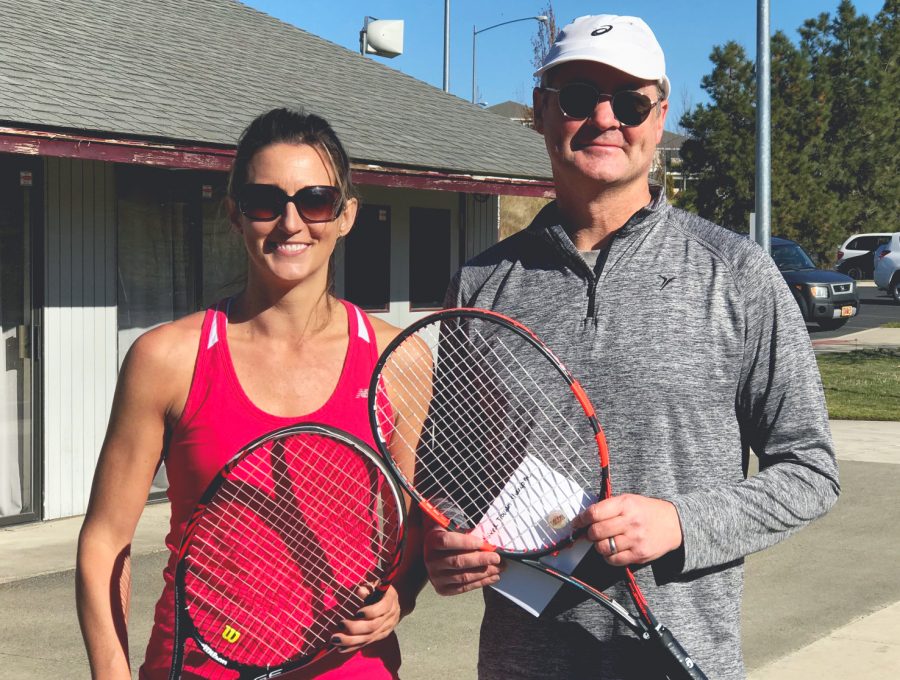Palouse Tennis Club championships continue growth
More students were involved in this year’s Pullman tournament
Amy Rogers, left, and Trevor Bond were champions in the mixed doubles category.
November 1, 2017
WSU tennis Head Coach Lisa Hart was tournament director for the Palouse Tennis Club’s sixth annual championship Saturday. A total of 53 players registered for the event, Hart said, and 31 competed head-to-head.
The one-day tournament was held on WSU’s campus, and has historically attracted players from all around the Pacific Northwest, Program Manager Dean Funabiki said.
“The Palouse Tennis Club has been very fortunate to have Lisa Hart as the tournament director,” Funabiki said. “Coach Hart, who leads the WSU collegiate program, is also dedicated to helping community-based events, such as this tournament.”
Hart was involved with each of the previous five annual tournaments.
Funabiki said the mission of this event was to bring awareness of the tennis opportunities to players in the region.
“Compared to other areas of Washington and the Pacific Northwest,” he said, “there are relatively few tournaments available.”
That’s why the club set out to provide increased opportunities in places like Pullman, Moscow and Lewiston in 2010, he said. Not long after, the first Palouse Tennis Championship was held.
Typically, the tournament spans two days, but this year, the club held a one-day championship. College and high school students who want to participate were offered a discount, and did not have to purchase a membership — another new feature from previous years.
While players were required to pay $25 per person, the cost for students was $20.
“A unique aspect of our tournament is definitely the draw of players from all ages, from high school players through their 60s and beyond,” Funabiki said. “This year, we have put a stronger emphasis on high school and college players from the region.”
He said students wanted to play last year, but could not justify the cost of a U.S. Tennis Association membership fee.
Therefore, Funabiki and Hart experimented with promoting a non-sanctioned tournament with the goal of giving students in high school and college a greater opportunity to play, he said.
“At the same time, we were able to still keep the adult USTA members,” Funabiki said.
Palouse Tennis Club teams compete in various age group competitions, some 18 years of age and older, some 55 years and older.
Members often travel around the region, as two USTA team will do when they competes in the Tri-Cities from Feb. 16-18.
Funabiki said tennis players have historically traveled from the Pacific Northwest and even from parts of the West Coast, including California.
The program manager originally anticipated at least 50 participants would show up. The event, which has been expanding, was a success Funabiki said.
“We are pleased that we accomplished that goal,” he said, “since we had a sizeable number of college and high school players at this year’s tournament.”
Those interested in learning more about upcoming events or membership can visit the Palouse Tennis Club’s website.










